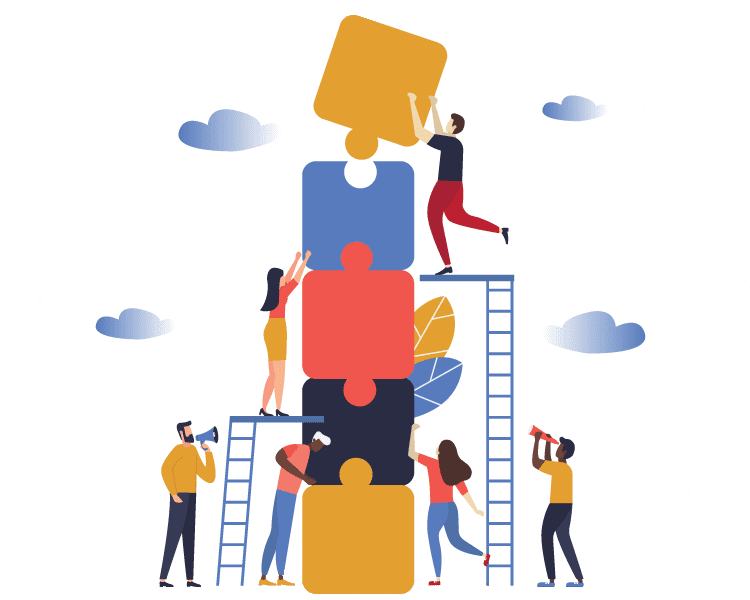

There is an increasing focus in modern business on being global, diverse, and cosmopolitan. But why? Whilst you may think of these as little more than fun buzz words, understanding globality and diversity is crucial in today’s international environment – corporate or otherwise. Because this is the reality and future of the world… Read more »

As we traverse the evolving landscape of employee-employer dynamics, it becomes evident that traditional paradigms are undergoing profound transformations. The contours of the modern workplace are shaped by nuanced expectations and interwoven complexities, demanding a human-centric approach to foster harmonious relationships and sustainable growth. In this article, we will delve into the various facets of… Read more »

Embarking on a professional journey in Spain involves more than just mastering the language and loving the weather and the beautiful beaches; it requires a nuanced understanding of the country’s unique business culture and practices. Spain has become a hub for tech companies and young talent, but it is important to know how business is… Read more »

Digital transformation refers to the integration of digital technologies into various aspects of a business, resulting in fundamental changes to how the organisation operates, delivers value to customers, and engages with stakeholders. It involves leveraging digital tools, technologies, and data to enhance business processes, improve efficiency, and create new opportunities for growth and innovation. The… Read more »

Sunday, 10th February 2024 marks the beginning of the new lunar year. This year will be the Year of the Dragon, the fifth of all zodiac animals. This period stands out for its rarity and significance, emphasising the pursuit of dreams, creativity, and the expansion of horizons. It invites a year of generosity, compassion, and… Read more »

France is not only the country of baguette, good cheese, and excellent wine. It is much more complex and offers its challenges when in day-to-day living. Below are some tips to ensure that your employees settle well when relocating to this country: Improve your employee experience. A change in professional life leading to a change… Read more »

In the dynamic landscape of today’s talent market, staying ahead requires strategic insights and a proactive approach. One invaluable tool that organisations are leveraging to gain a competitive edge is talent benchmarking or market mapping. What is Talent Mapping? Talent benchmarking involves a comprehensive analysis covering salary ranges, benefits, qualifications, experience, and job responsibilities of… Read more »

In today’s competitive job market, it’s not enough to simply offer a competitive salary and benefits package to attract top talent. Companies must also have a strong brand culture that resonates with potential employees. But what exactly is brand culture, and how can you leverage it for talent acquisition? In this article, we’ll explore the… Read more »

In Australia, there are 8 national public holidays observed as part of the National Employment Standards (NES) that underpin employment throughout the country. In addition to these key dates, some states and territories also have additional regional public holidays or substitute public holidays. Substitute public holidays mean that if a public holiday falls on… Read more »

Polyglot, your trusted boutique recruitment consultancy, is thrilled to share the exciting news of securing the bronze medal in the recruitment firms category at the esteemed Human Resources Director’s sixth annual Service Provider Awards. This prestigious accolade is not just a recognition of our commitment to excellence but a celebration of our shared success in… Read more »


We offer translation services for a wide range of languages, covering all major languages spoken worldwide. Additionally, our team includes experts in specialised fields, such as legal and technical translations, ensuring that we can meet your specific language and industry requirements effectively.
The time it takes to translate a document depends on the length of the document, the complexity of the subject matter, and the availability of our translators. We can usually provide a quote within 24 hours.
Our turnaround time for translation is flexible and depends on the specific requirements of your request, including the size and complexity of the project. We work diligently to provide high-quality translations within a timeframe that suits your needs. Your project’s timeline is our priority, and we aim to accommodate it effectively.
We use a rigorous process to ensure the accuracy of our translations. All translations are first reviewed by a native speaker of the target language. The translation is then reviewed by a second native speaker. We also offer a quality assurance guarantee on all of our translations.
There are many benefits to using a language service provider. A language service provider can help you to:

The cost of our services depends on the language(s) you need translating, the length of the document, the complexity of the subject matter, and the turnaround time. As aforementioned, we can usually provide a quote within 24 hours.
The primary function of professional translation is to facilitate business communication by delivering accurately translated information to connect you with your chosen target market(s).
But more importantly, professional translators have the required skill set to holistically localise your communication so that it’s adapted to your audience.
This means that professional translators can adapt your message from one language to another while maintaining its intent, style, tone and context. This is crucial when looking to do business across different markets, as a simple mistake can quickly cost your business.
Relying on professional translation services is not just a recommendation; it’s a crucial step when expanding your business globally. While commencing with the translation of legal documents is a logical starting point, it’s imperative not to limit your translation efforts solely to this aspect.
Your business has two key stakeholders: employees and customers. To effectively engage with both, it’s essential to consider professional translation for not only your legal documents but also your internal communications and marketing materials.
At Polyglot Group, we provide a range of specialised translation services, including sworn, NAATI-certified, and certified translation. These services play a pivotal role in ensuring compliance with local regulations and legal requirements. They go beyond linguistic accuracy, encompassing cultural nuances and legal precision.
Whether you’re communicating internally with your international workforce or reaching out to potential customers in a foreign market, our professional translation services are indispensable. They not only facilitate legal compliance but also help establish trust and credibility with your global audience, ultimately contributing to the success of your international endeavours.
In the realm of language services, understanding the nuances between translation, localisation, and transcreation is pivotal. Let’s explore these distinctions in a more practical light, considering potential customers as our target market:
In essence, while translation ensures information transfer, localisation adds cultural finesse, and transcreation infuses creativity into the mix. Considering these nuances can make all the difference in conveying your business message effectively and establishing meaningful connections with your brand.
Selecting the appropriate language support service for your business necessitates a thorough evaluation of your specific requirements and the target audience you aim to engage. Here’s a breakdown to guide your decision:
In summary, the right language support service depends on your communication needs, the nature of your content, and your target audience. By carefully assessing these factors, you can make an informed decision to enhance your global communication strategy and business expansion efforts.
Ensuring the quality of your translation, localisation, or transcreation projects is paramount for effective communication. Here’s how you can guarantee top-notch results:
By following these steps and collaborating closely with your language service provider, you can ensure the highest quality in your translation, localisation, or transcreation projects, ultimately enhancing your global communication and outreach efforts.
Make sure that the language service provider has measures in place to protect the confidentiality and security of your information. This may include using secure file transfer methods, requiring signed non-disclosure agreements, and ensuring that their employees are trained in data security best practices.
When collaborating with our language service provider, you can rest assured that confidentiality and security are at the forefront of our commitment to you. We securely retain all documents for an impressive 10-year period, offering you a valuable safety net in case of document loss or unforeseen circumstances. This long-term storage is not only beneficial but also underscores our dedication to your data’s safety and compliance.
Furthermore, we are proud to declare our GDPR compliance. This means that your data is handled in strict accordance with data protection and privacy regulations, ensuring that your sensitive information is treated with the utmost care and respect throughout the translation, localisation, or transcreation process. Your peace of mind is our priority.